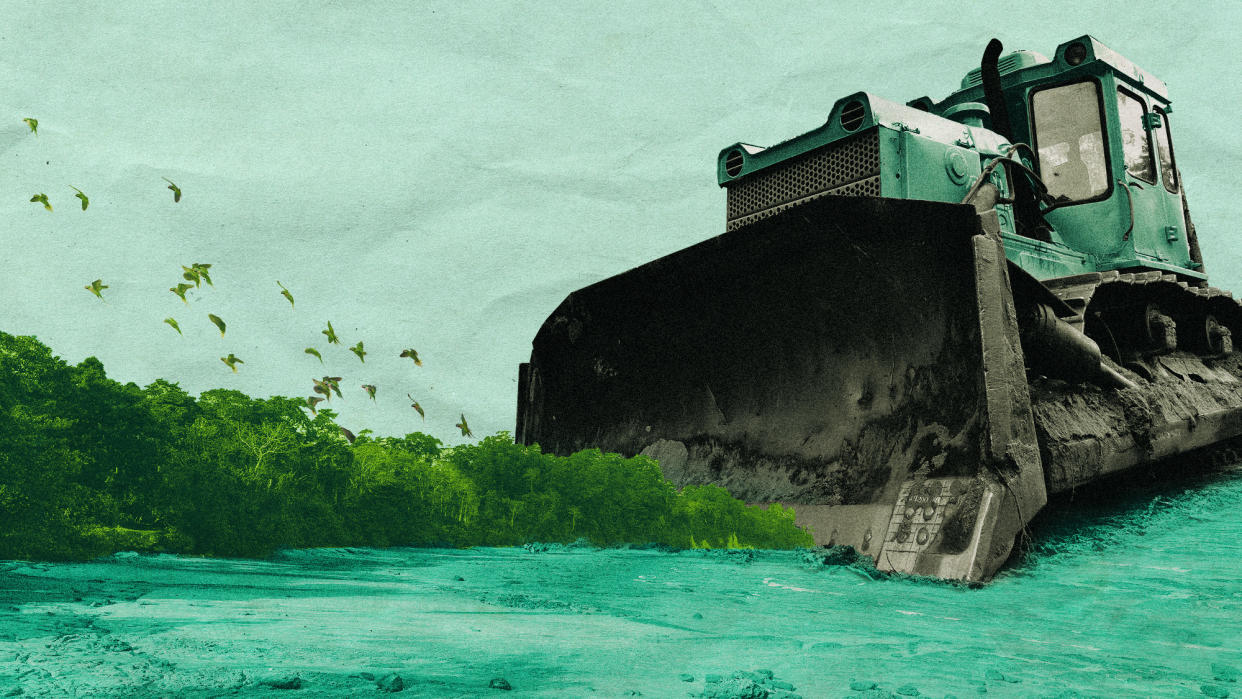India's controversial plans for untouched Nicobar Isles

There are serious concerns about the survival of a remote tribe who live on Great Nicobar Island in the Indian Ocean after plans were announced to transform it into a "Hong Kong of India".
Indian authorities are looking to invest $9 billion (£7 billion) in a project that will industrialise an area of the tropical island, which is part of the Nicobar archipelago that sits about 800 miles from Sri Lanka. Plans involve building an international airport, tourism facilities, an international shipping terminal, power plant and industrial park.
However, a number of "academics from around the world", said The Guardian, have written to India's president, Droupadi Murmu, urging him to hold fire on the plans, saying they would threaten the lives of indigenous Nicobarese and Shompen tribes that live on the 700 square-mile island. The Shompen are particularly isolated, having "little contact with the outside world", making them especially vulnerable to contact with outsiders.
'A major landmark in developing India'
The plans for the island are part of a "strategic blueprint" to "spur maritime development in the country", said The Maritime Executive. India's marine and shipping sector has been "hobbled by poor port infrastructure" and it wanted a port on Great Nicobar by 2028 that is big enough to "handle the largest container ships".
Great Nicobar marks a "major landmark in developing India to become a self-reliant nation", said the country's minister for ports, shipping and waterways, Shri Sarbananda Sonowal. The government also sees the project as "vital for security and defence", said The Guardian, given the "strategic location" on "one of the world's busiest sea routes". China's "growing presence" in the Indian Ocean is also prompting India to make such developments.
Ministers are "expected" to approve the project in the "coming months", the paper said, with work set to begin before the end of the year. The Ministry of Environment has given the go-ahead for 850,000 trees on the island to be felled.
'Tantamount to genocide'
Paramount among the concerns of objectors is the welfare of the 8,000 people who live on the island.
The secluded Shompen tribe, who "inhabit the interior of the island's lush forests" and have done so for thousands of years, are "illiterate by modern standards" but are "self-sufficient", having been "schooled in the ways of the forest and the land", said Article 14. The development will almost certainly displace many of these people and it remains "uncertain what might happen if and when entire habitations are forced to relocate".
The Nicobarese people, who are less isolated, live predominantly on the south and west coast of the island, but have yet to return to many of their ancestral settlements after being moved by the Indian government following the devastation of the 2004 tsunami. But these lands could now be "swallowed by the project" without the consent of the Nicobarese people, said Article 14, and the Nicobarese have alleged the Indian government made them "false promises" over the status of the land.
In their open letter, the academic experts said the development would prove a "death sentence for the Shompen" and that the demographic shift would cause a "collective psychic breakdown, leading to a devastating decline in the population".
Contact with outsiders, they added, would lead to the "mass death of the entire Shompen tribe". The results of the plan are "tantamount to the international crime of genocide", the letter said.
There are also concerns too over the effect on the ecology and biodiversity of the island. But Arjun Munda, India's tribal affairs minister, said the project would be executed with the "utmost precautions to maintain the sanctity of the place and its people" and "without disturbing its rich biodiversity".

